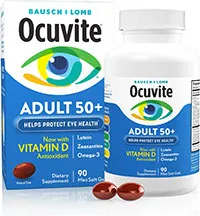Introduction
Introducing the vital topic of eye vitamins for macular degeneration, a crucial discussion for maintaining optimal eye health.
Understanding Macular Degeneration
Macular degeneration, also known as age-related macular degeneration (AMD), is a progressive eye disease that affects the macula, a small area in the center of the retina responsible for sharp, central vision. This condition gradually deteriorates the macula, leading to blurred or distorted vision and, in severe cases, irreversible central vision loss. Macular degeneration is the leading cause of vision loss in individuals over the age of 50, affecting millions of people worldwide. There are two main types of macular degeneration: dry AMD and wet AMD. Dry AMD, the most common form, is characterized by the gradual breakdown of the macula due to the accumulation of drusen, small deposits of waste material beneath the retina. Wet AMD, although less common, is more severe and involves the growth of abnormal blood vessels beneath the macula, which can leak fluid or blood, causing rapid vision loss.
The Role of Eye Vitamins
Eye vitamins play a crucial role in supporting macular health and reducing the risk of developing macular degeneration. By providing essential nutrients and antioxidants to the eyes, these vitamins help protect the macula from oxidative damage, inflammation, and other age-related changes that contribute to macular degeneration. While a healthy diet rich in fruits, vegetables, and other nutrient-dense foods can provide many of these essential nutrients, supplementation with specific eye vitamins may be beneficial for individuals at risk of macular degeneration or those already diagnosed with the condition. These vitamins include anthocyanins, carotenoids, flavonoids, vitamins, and minerals, each with its unique properties and benefits for supporting macular health and preserving vision.
Anthocyanins: Powerful Antioxidants
Anthocyanins are a group of flavonoid antioxidants found in deeply pigmented fruits and vegetables, such as blueberries, blackberries, and bilberries. These compounds help neutralize harmful free radicals in the eyes, reducing oxidative stress and inflammation in the retina. By protecting the delicate cells of the macula from damage, anthocyanins may help slow the progression of macular degeneration and preserve visual function.
Carotenoids: Essential for Vision
Carotenoids are pigments found in many fruits and vegetables that give them their vibrant colors. Two essential carotenoids for eye health are lutein and zeaxanthin, which accumulate in the macula, where they act as natural filters, absorbing harmful blue light and protecting the retina from damage. By reducing oxidative stress and preventing the formation of harmful free radicals, lutein and zeaxanthin help maintain macular integrity, support visual acuity, and reduce the risk of developing macular degeneration.
Flavonoids: Anti-inflammatory Agents
Flavonoids are a diverse group of plant compounds known for their antioxidant and anti-inflammatory properties. Found in a wide range of fruits, vegetables, and herbs, flavonoids help reduce inflammation and oxidative stress in the eyes, protecting against macular degeneration and other age-related eye diseases. Flavonoids may also improve blood flow to the retina, supporting optimal retinal function and visual performance.
Vitamins for Macular Degeneration and Eye Health
- Vitamin C: Protects the eyes from free radical damage and supports collagen production in the retina.
- Vitamin E: Acts as a potent antioxidant, protecting cell membranes in the retina from oxidative damage.
- Vitamin D: Helps regulate immune function and reduce inflammation in the eyes, lowering the risk of developing macular degeneration.
Minerals for Macular Health
- Zinc: Plays a crucial role in the metabolism of Vitamin A in the retina and supports the formation of visual pigments.
- Copper: Works synergistically with zinc to maintain healthy vision and prevent age-related macular degeneration.
Choosing the Right Eye Vitamin Supplement
Look for supplements containing a comprehensive blend of anthocyanins, carotenoids, flavonoids, vitamins, and minerals to support macular health and prevent vision loss due to macular degeneration.
Dosage Recommendations
Consult with an eye care professional to determine the appropriate dosage of eye vitamins for macular degeneration based on your age, risk factors, and overall health status.
Conclusion
In conclusion, incorporating anthocyanins, carotenoids, flavonoids, vitamins, and minerals into your diet or supplementation regimen can help protect the macula, support overall eye health, and reduce the risk of developing macular degeneration. By nourishing your eyes with these essential nutrients, you can preserve your vision and enjoy optimal eye health well into the future.
Reference: https://www.ncbi.nlm.nih.gov/pmc/articles/PMC6523787/


